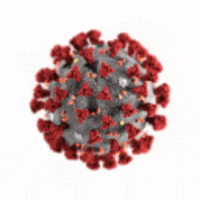There was never any question whether the global coronavirus pandemic would be named the most important religion-news story in 2020.
The question was which faith-driven COVID-19 story -- out of a dozen or so -- would top the Religion News Association's Top 10 list.
According to journalists who cover religion, this was the year's biggest story: "COVID-19 pandemic claims lives of many religious leaders and laity, upends death rituals, ravages congregational finances, spurs charitable responses, forces religious observances to cancel or go online and stirs legal fights over worship shutdowns."
But there was a problem on my ballot. The RNA list included another coronavirus item focusing on religious liberty. In some cities and states, officials created pandemic regulations that claimed many institutions -- from grocery stores to casinos -- provided "essential services." Meanwhile, other institutions -- like churches and synagogues -- were deemed "non-essential."
The U.S. Supreme Court eventually ruled that religious institutions shouldn't face tougher rules than secular groups and activities. It was wrong, for example, to ban masked priests from hearing confessions -- outdoors, 10 feet away from masked penitents -- while consumers were lined up at liquor stores.
These conflicts continued. In a symbolic pre-Christmas press conference, Virginia Governor Ralph Northam explained why he thought religious groups should be willing to move their activities online and stay there -- for now.
"This year we need to think about what is truly the most important thing," Northam explained, in a Richmond press conference. "Is it the worship or the building? For me, God is wherever you are. You don't have to sit in the church pew for God to hear your prayers."
Bishop Robert Barron of the Catholic Archdiocese of Los Angeles was not amused. The problem with this"secularized, Protestant-ized" view of worship, he said, is that it doesn't work for believers with ancient traditions that don't work online, such as offering communicants consecrated bread and wine.










